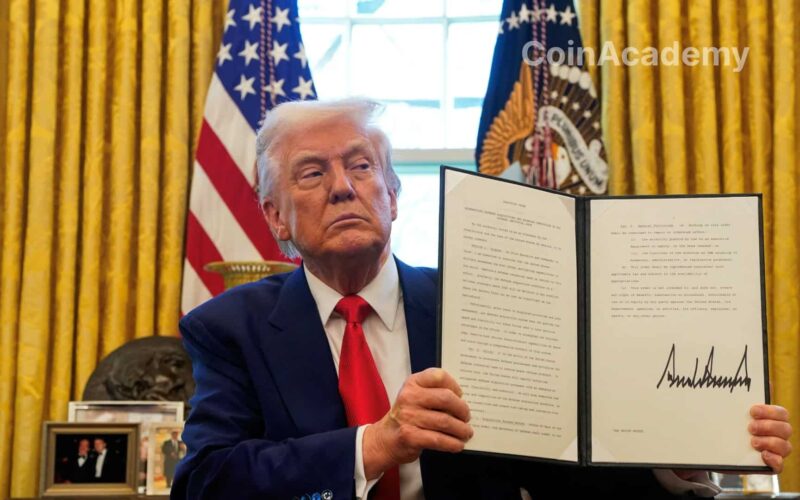The Trump administration has repealed an IRS rule that required DeFi platforms to transmit tax data from their users, thereby protecting the privacy and decentralized architecture of the sector.
A Historic Political Victory for the Crypto Sector
President Donald Trump has officially signed a Congress resolution that reverses a controversial IRS rule (Internal Revenue Service) imposed on decentralized finance protocols (DeFi). This tax provision, enacted towards the end of Joe Biden’s term, aimed to reclassify DeFi platforms as brokers, thereby requiring them to collect and transmit tax data from their users. This requirement posed a major threat to the privacy and functioning of decentralized projects.
The DeFi Broker Rule unnecessarily hindered American innovation, infringed upon the privacy of everyday Americans, and was poised to overwhelm the IRS with an influx of new filings that it did not have the infrastructure to handle during tax season. By repealing this ill-advised rule, President Trump and Congress have given the IRS the opportunity to refocus on its existing duties and obligations to American taxpayers instead of creating a new set of bureaucratic hurdles.
This repeal marks a first: never before had a pro-crypto initiative passed through all federal legislative steps in the United States. Congress used the Congressional Review Act, a rarely used lever, to revoke recent regulation while prohibiting the administration from proposing a similar measure in the future.
Revealing Bipartisan Support
The resolution was passed by both the House of Representatives and the Senate with comfortable, bipartisan majorities. This unusual consensus on a crypto-related topic reveals a shift in posture in Washington, where the digital ecosystem, long viewed with suspicion, is now enjoying growing political support.
Representative Mike Carey, a leading figure in this legislative battle, praised the decision as one that “protects American innovation while pushing back against regulatory excess.” His initiative found favor among both conservatives and some Democrats, who are keen not to hinder a sector seen as strategic for U.S. technological competitiveness.
Towards More Global Crypto Regulation
The repeal of this tax rule is just one step. It paves the way for other significant reforms, particularly regarding stablecoins and the overall regulation of crypto markets. Bills have already been approved in committee in both chambers and now await a vote in plenary session. The stated goal is to enact coherent legislation before the end of the summer.
By reaffirming his support for financial innovation and American digital sovereignty, Donald Trump places cryptocurrencies at the center of his economic agenda. As the battle for global leadership in web3 intensifies, the United States seems determined not to be left behind.




